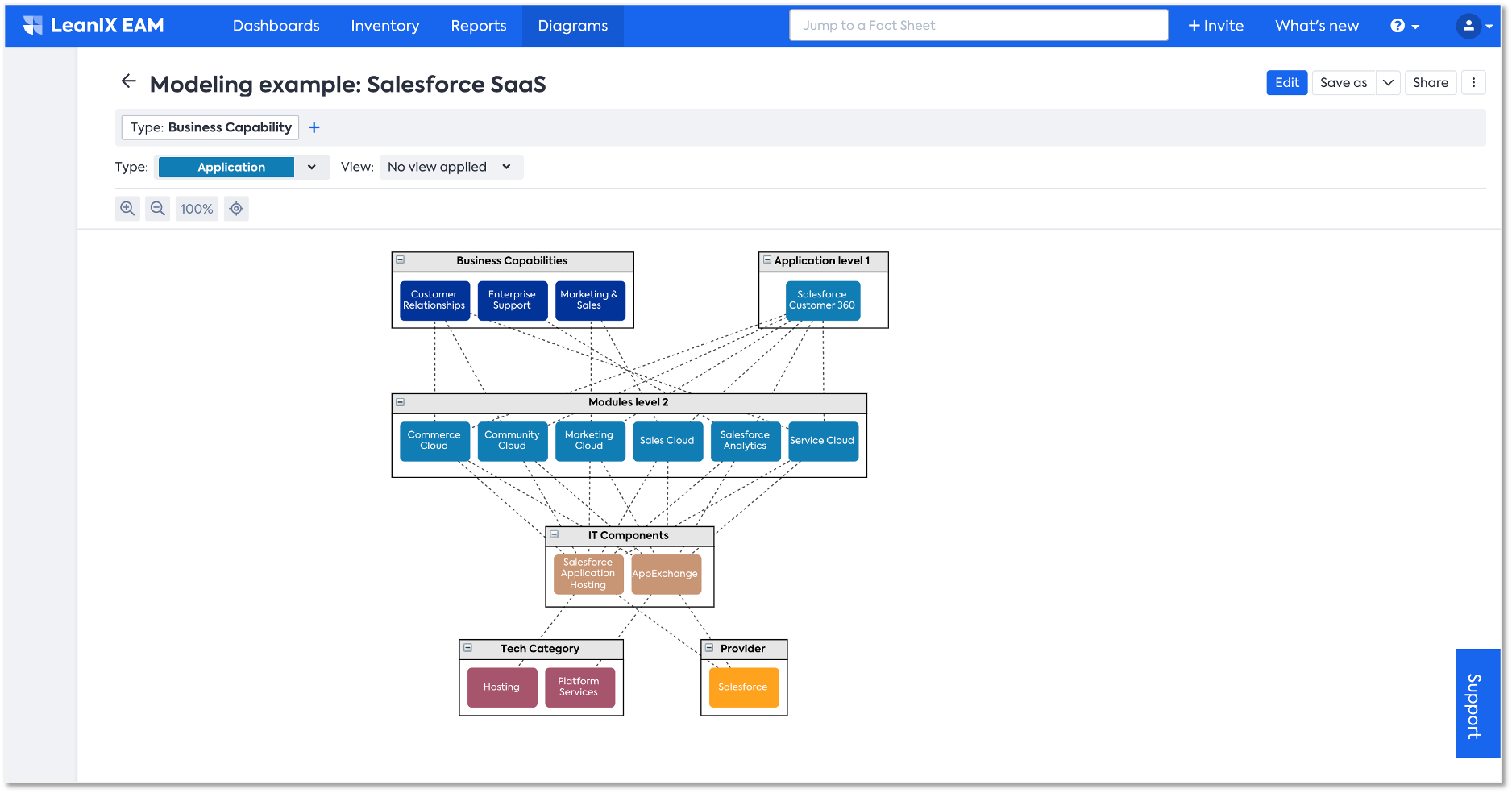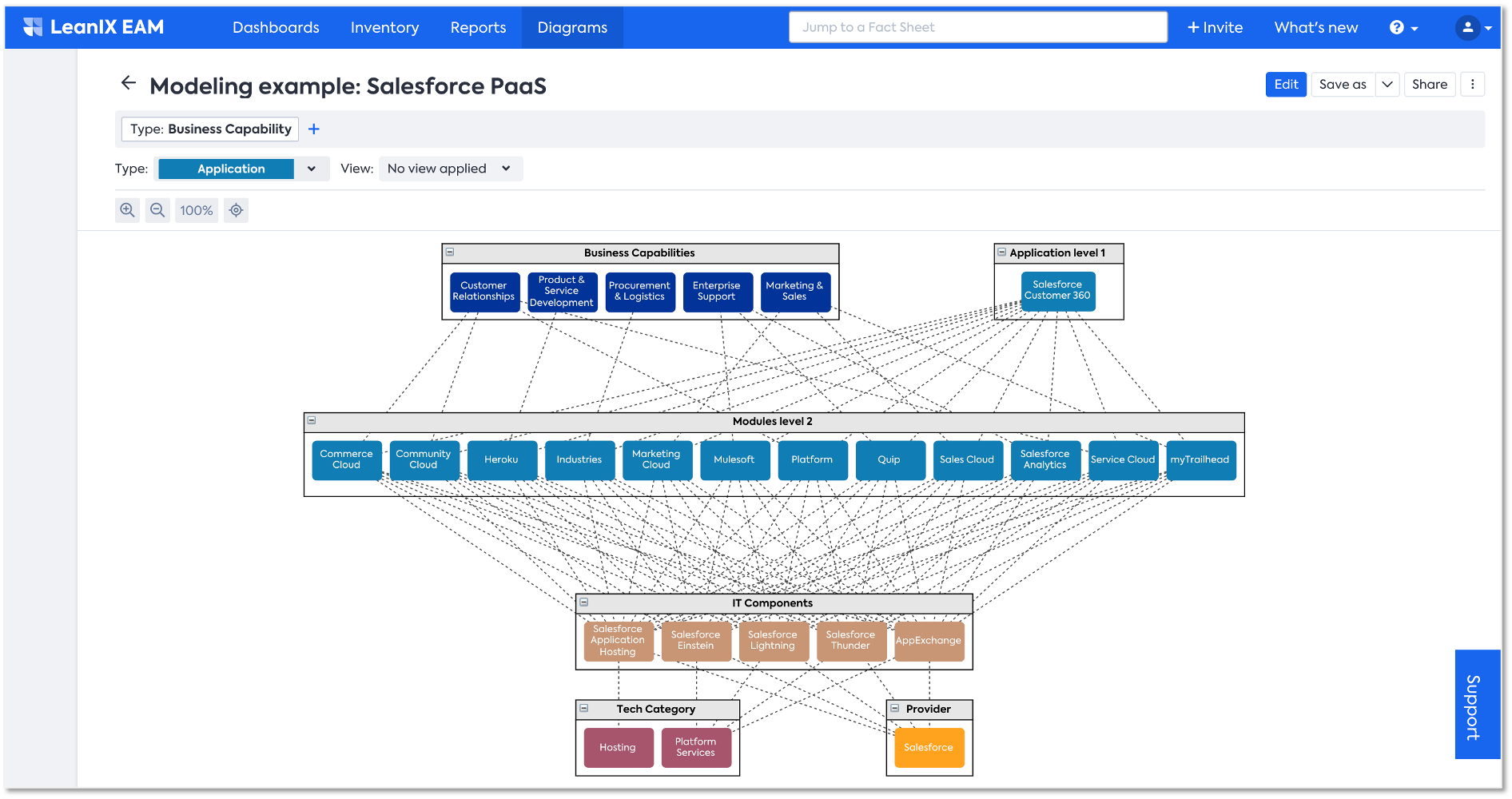Salesforce Applications Modeling Best Practices
Similar to SAP, Salesforce is heavily used worldwide as the leading CRM tool. In contrast to the SAP solutions we analyzed in the previous sections, Salesforce can be considered a SaaS and a PaaS solution. The modeling is different. In the following sections, we will show you best practices for modeling Salesforce as a SaaS and a PaaS solution.
Salesforce (SaaS)
Software-as-a-Service (SaaS) is a way of delivering centrally hosted applications as a service over the Internet. SaaS applications run on a SaaS provider’s servers. Instead of installing and maintaining software, you simply access it via the internet. The provider manages access to the application, including security, availability, and performance. SaaS business applications are usually accessed through a thin client via the web browser. The following diagram shows an example of how to model Salesforce as a SaaS solution in SAP LeanIX:

Import Template
Use the following link (click here) to get your own copy of the Salesforce SaaS import template and kick-start your Salesforce modeling with SAP LeanIX.
Salesforce (PaaS)
Platform-as-a-Service (PaaS) is a proven model for running applications without the hassle of maintaining on-premise hardware or software infrastructure at your company. The built-in features and functionality take care of back-end concerns such as security, infrastructure, and data integration so that you can focus on building your apps faster. The following diagram shows an example of how to model Salesforce as a PaaS solution in SAP LeanIX:

Import Template
Use the following link (click here) to get your own copy of the Salesforce PaaS import template and kick-start your Salesforce modeling with SAP LeanIX.
Updated 11 months ago
